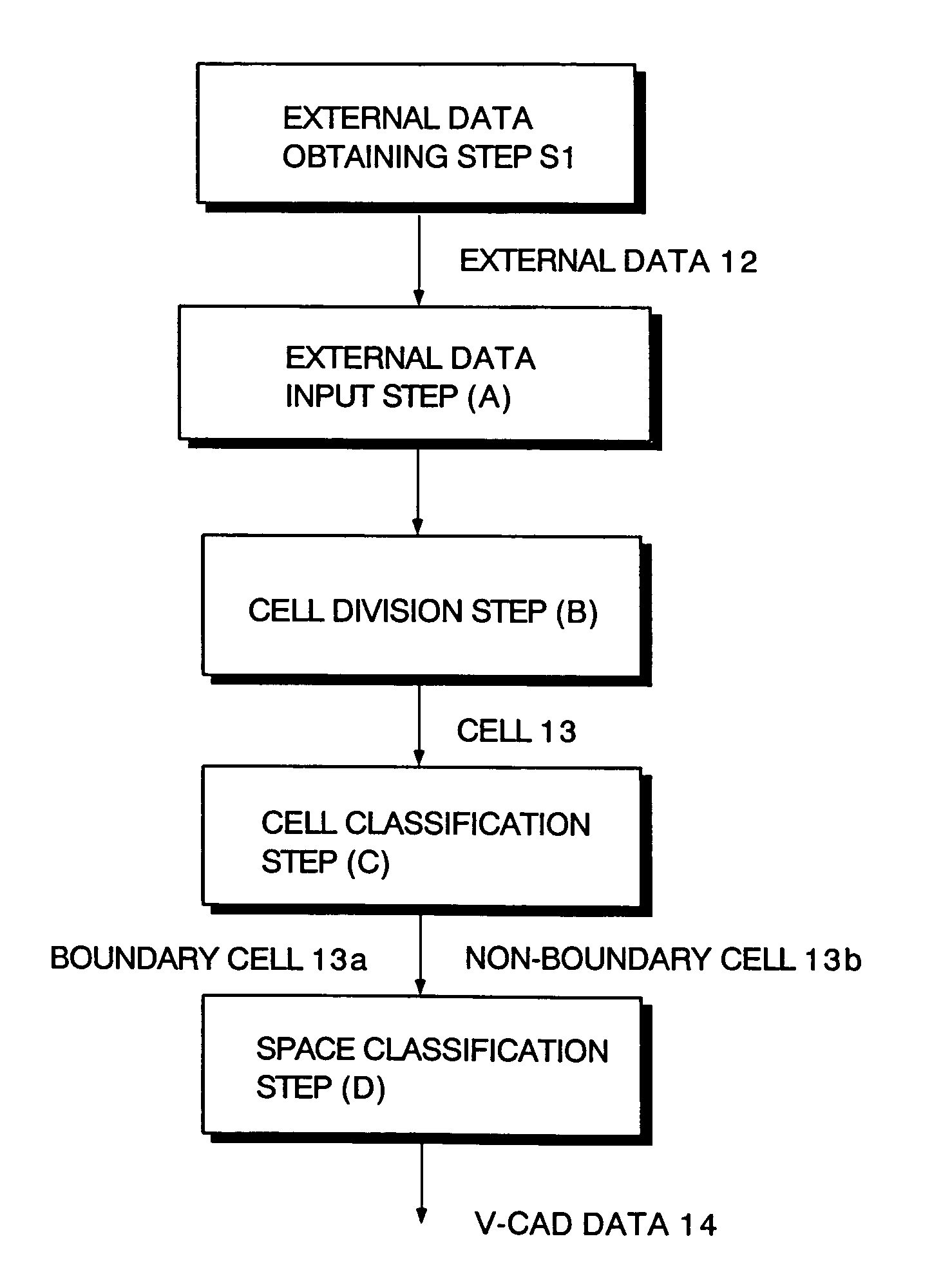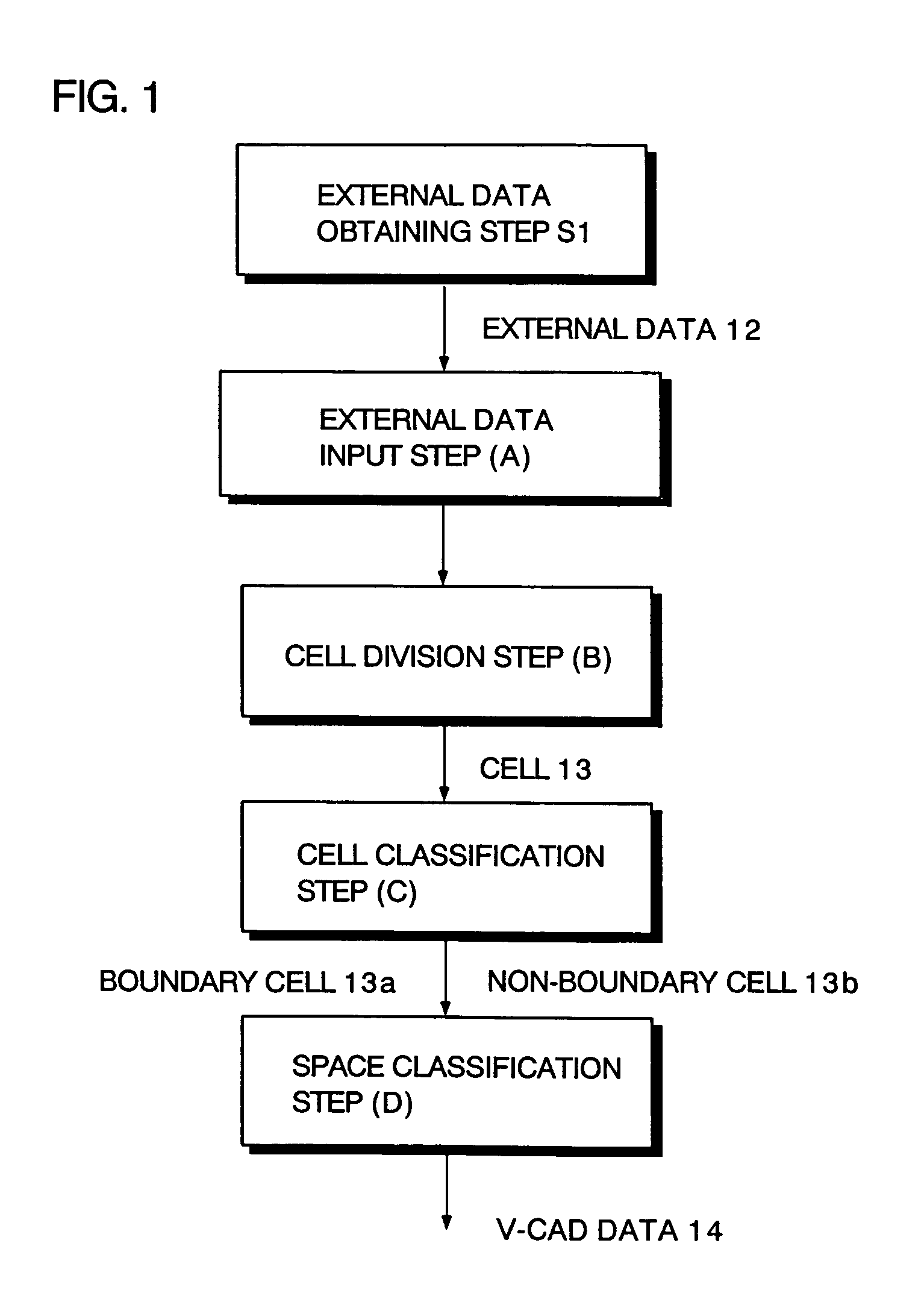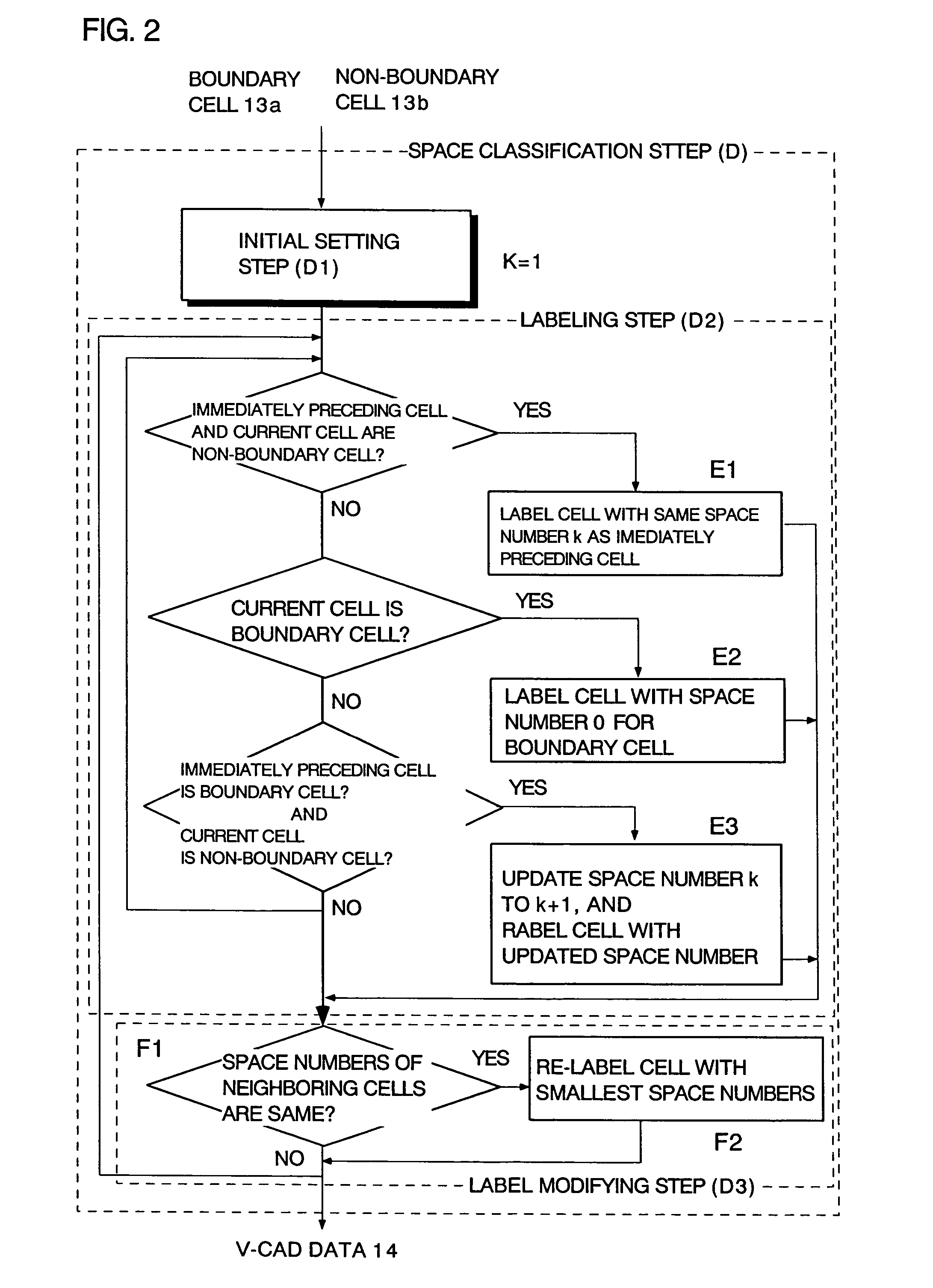Method and program for determining insides and outsides of boundaries
a two-dimensional or three-dimensional boundary surface and program technology, applied in image analysis, image enhancement, instruments, etc., can solve the problems of inability to apply the region growing method to a case, the processing time is long, and the processing speed is high, and the implementation in a computing machine is easy
- Summary
- Abstract
- Description
- Claims
- Application Information
AI Technical Summary
Benefits of technology
Problems solved by technology
Method used
Image
Examples
example
[0089]Next, examples of the embodiment of the present invention will be described. FIGS. 6 through 11 show relatively complicated examples. Although the solid modeling is weak on the examples shown FIGS. 6 through 11, the inside / outside determination of the method of the present invention is robust on these examples.
[0090]FIG. 6 shows input data of a pressing mold for an automobile bumper in the form of a solid model.
[0091]FIG. 7 shows cells and boundary data converted from the input data of FIG. 6.
[0092]FIG. 8 is a partial enlarged view of FIG. 7, and shows cells surrounded by thin lines as well as the boundary data.
[0093]FIG. 9 partially shows a section of FIG. 7, and the ellipse marks indicate parts that lack boundary data. From FIG. 9, it is understood that the boundary cells can be recognized even if there is a relatively large lack of which size is close to a cell size.
[0094]FIG. 10 shows a configuration where cut points are added to the entire configuration of FIG. 9. In the ...
PUM
 Login to View More
Login to View More Abstract
Description
Claims
Application Information
 Login to View More
Login to View More - R&D
- Intellectual Property
- Life Sciences
- Materials
- Tech Scout
- Unparalleled Data Quality
- Higher Quality Content
- 60% Fewer Hallucinations
Browse by: Latest US Patents, China's latest patents, Technical Efficacy Thesaurus, Application Domain, Technology Topic, Popular Technical Reports.
© 2025 PatSnap. All rights reserved.Legal|Privacy policy|Modern Slavery Act Transparency Statement|Sitemap|About US| Contact US: help@patsnap.com



